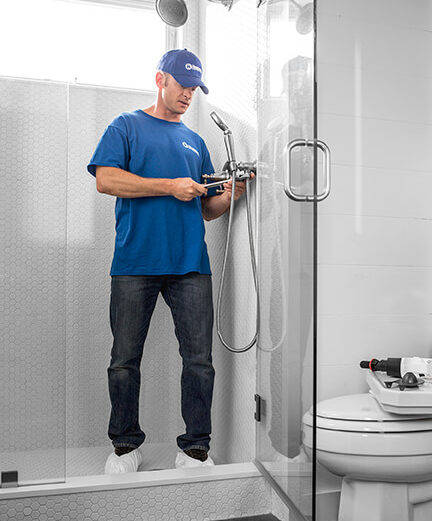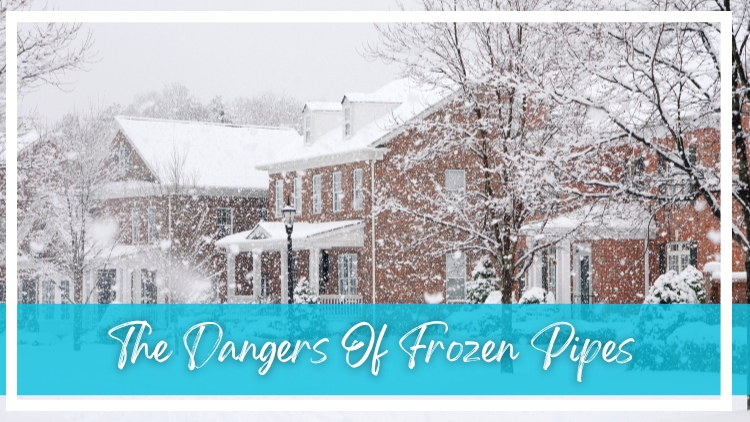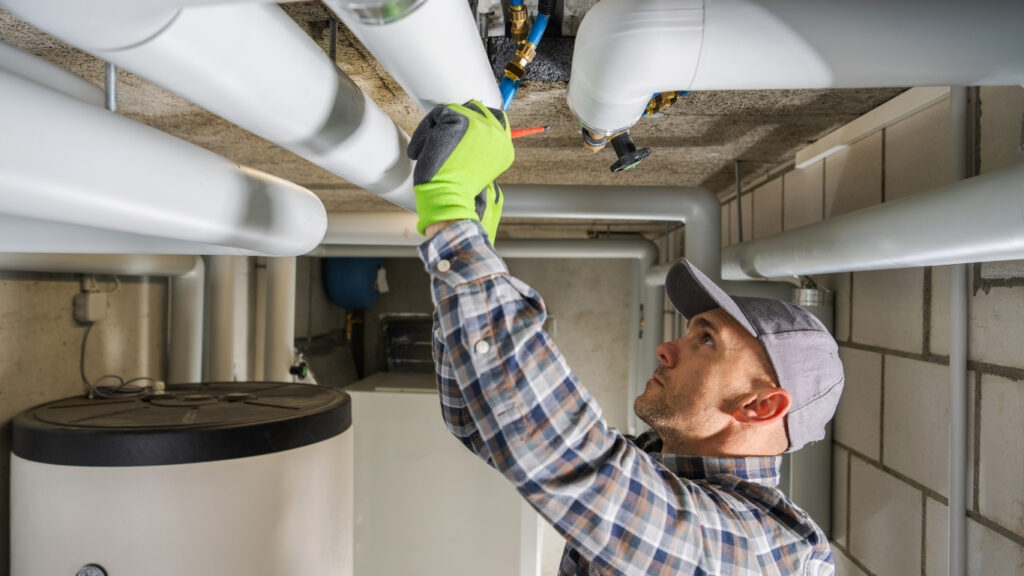We offer a wide range of services for that fresh look, or just maintenance or updates to keep your home functioning and safe. Regardless of the size of the job, we have a craftsman that can tackle it. We offer a wide range of services for that fresh look, or just maintenance or updates to keep your home functioning and safe. Regardless of the size of the job, we have a craftsman that can tackle it.

Plumbing / September 5, 2025

Winter brings the joy of snow, hot cocoa, and cozy evenings, but it also brings challenges for homeowners. One major concern is frozen pipes, which can spell disaster for your home.
When the temperature drops, your pipes are at risk of freezing, leading to burst pipes, major water damage, and costly repairs. The best strategy? Prevent frozen pipe damage before the problem occurs.
Wondering how to protect your home plumbing in winter? It starts with preparation. From insulating pipes to maintaining consistent home temperatures, there are a variety of steps you can take to shield your home from the dangers of frozen pipes. And if you’re not sure where to start, we’re here to help.
At Handyman Connection in Silver Springs and other neighbourhoods around Calgary, our experts provide professional solutions to prevent frozen pipe damage, ensuring your home stays safe and functional all winter long.
Below, we’ll discuss the risks of frozen pipes and share actionable tips to avoid pipe freezing. Don’t leave your plumbing to chance. Here’s everything you need to know to protect your home plumbing in winter.
Before we explore prevention, it’s important to understand the risks associated with frozen pipes. It’s more than just a minor inconvenience—frozen pipes can cause serious damage to your home.
Here’s what makes frozen pipes such a big deal:
Avoiding frozen pipes isn’t just about convenience—it’s about protecting your home. Here’s how you can take proactive steps to stay safe this winter.

When it comes to your plumbing, prevention is key. Here are several steps you can take to keep your pipes from freezing when the temperatures drop.
Proper insulation is one of the most effective ways to shield pipes from the cold. To get started, focus on the areas where pipes are most at risk of freezing. Here are some steps you can take:
By following these steps, you’ll add an extra layer of defence to your pipes, keeping the cold at bay and helping prevent frozen pipe damage.
Drastic changes in temperature can make your pipes freeze more easily. To prevent this, set your thermostat to stay at least 16°C, even when you’re not home.
Another helpful tip is to let your faucets drip slightly during very cold weather. Moving water is less likely to freeze, which can protect your pipes.
Also, keep interior doors open so warm air can flow through your home, especially in rooms with plumbing fixtures. Keeping your home warm and your pipes safe from the cold is all about consistency.
Cold air can sneak into your home through small gaps, making your pipes more likely to freeze. To stop this, use caulk or weather-stripping to seal cracks around windows, doors, and foundations.
Another way to protect your pipes is by keeping cabinet doors open under sinks. This lets warm air from your home reach the pipes, especially on very cold days. You can also use draft stoppers or rolled-up towels to block cold air from entering under doors or through vents.
Also, check for drafts near plumbing areas like under sinks, around outdoor faucets, and in places with exposed pipes. Taking these steps not only protects your pipes but also helps keep your home warmer and more energy-efficient during the winter.
Allowing your faucets to drip slightly during extreme cold can help prevent freezing. Even a small trickle keeps water moving, which reduces pressure inside your pipes.
This simple step can make a big difference, especially for pipes located along exterior walls or in unheated areas. It’s a good idea to check all your faucets regularly to ensure water is flowing properly during freezing temperatures.
Outdoor plumbing is more likely to freeze, so it’s important to prepare it before the temperature drops. Here’s what you should do:
By taking these steps, you can prevent frozen water from damaging your outdoor fixtures and connections.
For homes in extremely cold climates, investing in a pipe heating system may be a smart idea. These systems use electric cables to provide continuous heat to vulnerable pipes, reducing the chance of freezing.
Our team at Handyman Connection can help you choose and install a system that works best for your home, offering added peace of mind during the harshest winter months.

While prevention is the goal, water pipes can still freeze during extreme cold. If this happens, act quickly to reduce damage by following these steps:
Frozen pipes are a serious problem. Trusting experts ensures your home stays safe and protected.
Winter pipe problems don’t have to cause stress when you’ve got the right team on your side. At Handyman Connection in Calgary, we specialize in protecting your plumbing all year round. Our experts offer tailored solutions to prevent frozen pipe damage, from adding insulation to sealing drafts and more.
Plus, with our dependable services, you can trust that your home’s plumbing needs will be met efficiently and safely. Why take chances when you can work with experienced professionals?
Don’t wait until the damage is done—take action now to protect your home plumbing in winter. From setting up preventative measures to addressing concerns, we’re here to help. Request an estimate today, and we’ll ensure your pipes stay safe all winter long.
Take the worry out of winter. With us, you can enjoy a warm and stress-free season knowing your home is protected.